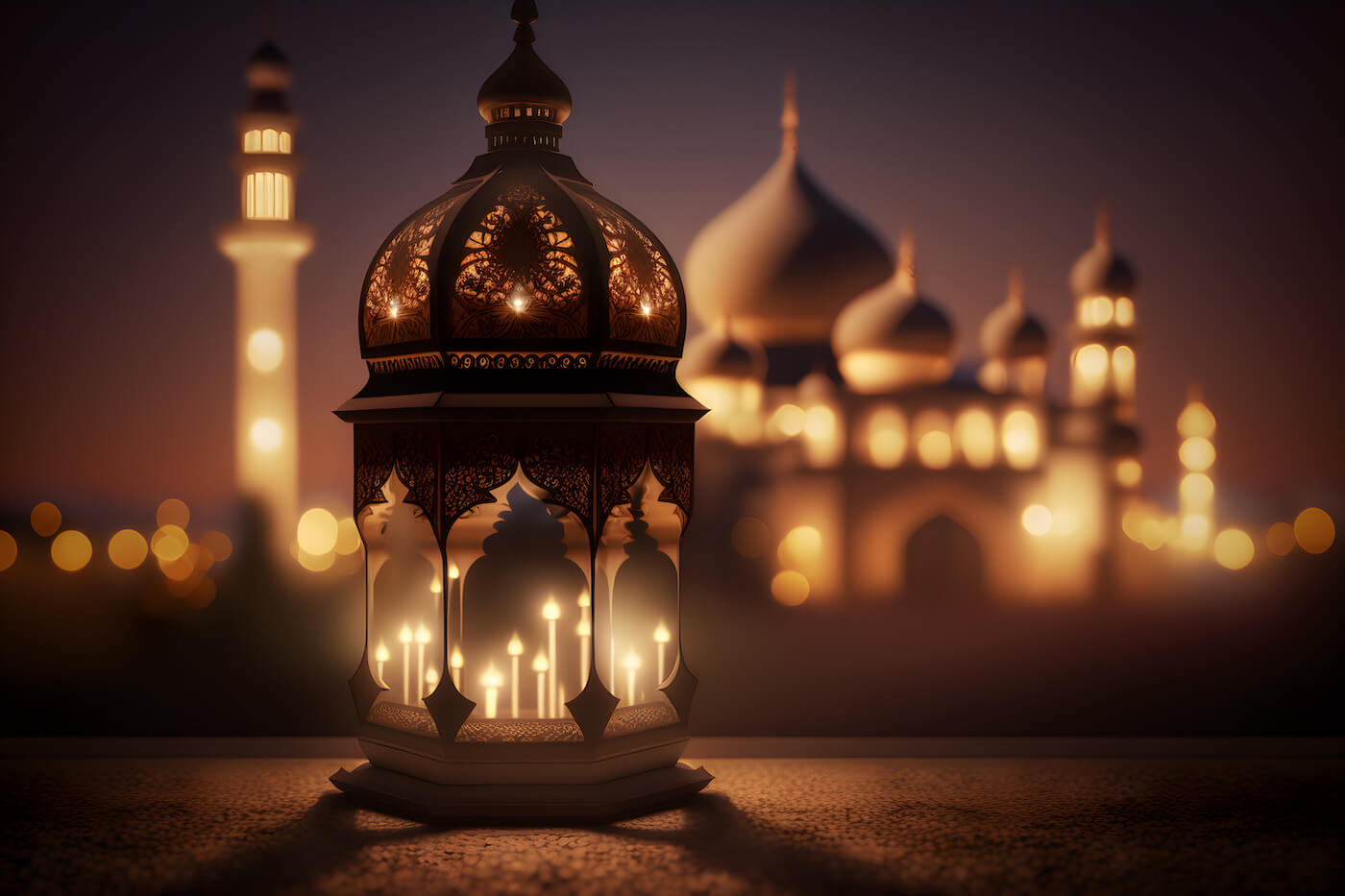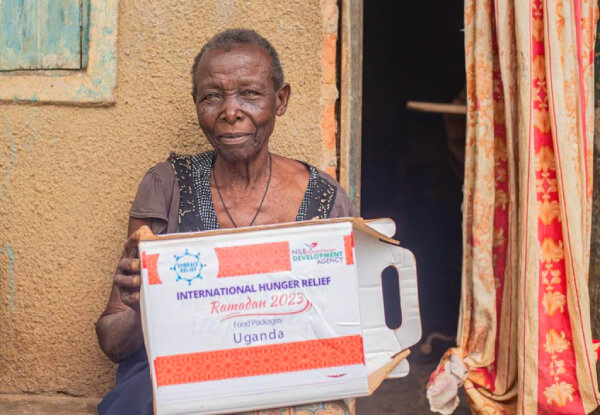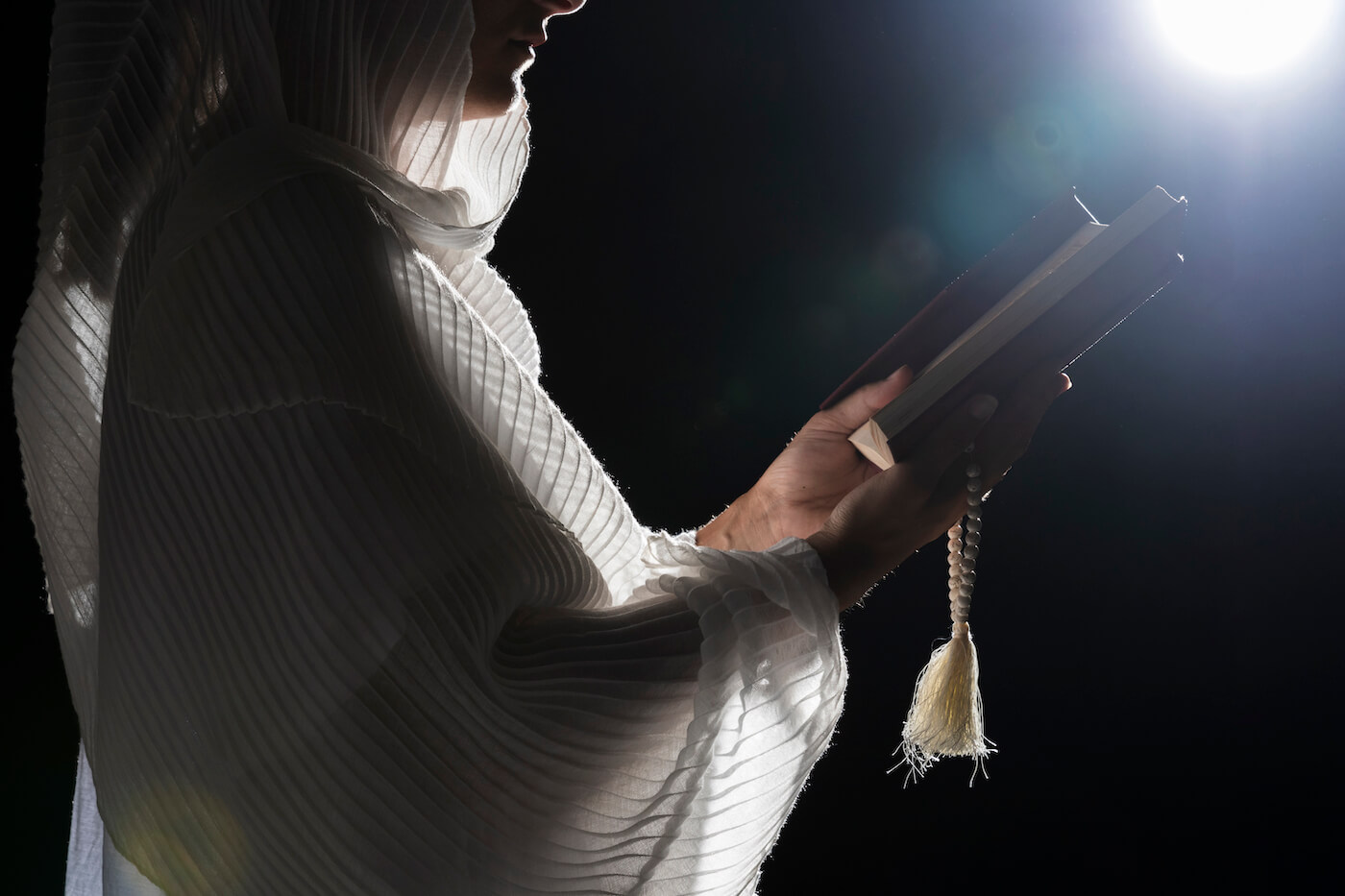Summary
- The history of the holy month of Ramadan is a journey spanning more than 1400 years, originating during the life of the prophet Muhammad and continuing to be observed by billions of Muslims today.
- Learn answers to questions like “When did Ramadan begin?”, “Why do we observe Ramadan?”, and “How has Ramadan changed through the years?”
- Find out more about how you can contribute to the spirit of Ramadan by donating to support Embrace Relief’s international humanitarian causes.
The Evolving Observance of Ramadan
Ramadan, the ninth month of the Islamic lunar calendar, holds a profound place in the hearts of Muslims around the globe. It is a time of reflection, devotion, and renewal, marked by the fast from dawn until sunset. This sacred period, established more than 1,400 years ago, is not only a testament to the endurance of faith but also a mirror reflecting the rich tapestry of Islamic history and culture.
The observance of Ramadan, as commanded in the Quran, is a practice filled with deep spiritual significance. It commemorates the month in which the Quran was revealed to Prophet Muhammad, serving as a guide for personal conduct, spirituality, and community life. Beyond its religious implications, Ramadan has been a catalyst for cultural traditions, social bonds, and historical milestones throughout Islamic history.
As we embark on a “Journey Through Time,” this blog post aims to explore the evolution of Ramadan from its origins to the present day. We will traverse through the ages, from the early days of Islam, across caliphates and empires, through periods of change and challenge, to the global observance of Ramadan in modern times. Each era brought its own traditions, interpretations, and celebrations of Ramadan, enriching the practice with diverse cultural flavors and deepening its significance.
This exploration is not just a historical recount; it’s an invitation to appreciate the enduring spirit of Ramadan that transcends time and geography. It’s a story of how a month of fasting has continued to inspire millions, fostering a sense of unity and purpose across the Muslim world.
Join us as we delve into the history of Ramadan, uncovering the layers of tradition, faith, and community that have shaped its observance through the centuries.
The Origins of Ramadan
The Divine Inception
The inception of Ramadan as a sacred period of fasting is deeply rooted in the Islamic faith, tracing back to a night known as Laylat al-Qadr (the Night of Decree). It was during this blessed night, believed to fall within the last ten days of Ramadan, that the Quran was first revealed to Prophet Muhammad by the angel Gabriel. This momentous event marked the beginning of a new chapter in human history, laying the foundation for the observance of Ramadan.
Establishing Ramadan as a Pillar of Islam
The obligation of fasting during Ramadan was established through Quranic revelation and further emphasized by the Hadiths—sayings and actions of Prophet Muhammad. Fasting during Ramadan was ordained to cultivate piety, self-discipline, and empathy for the less fortunate among the Muslim community. It became one of the Five Pillars of Islam, essential practices that define a Muslim’s faith and practice.
 Image by desEYEns on Freepik
Image by desEYEns on Freepik
Early Practices and Significance
In the early days of Islam, the observance of Ramadan was characterized by simplicity and profound devotion. Muslims would fast from dawn until sunset, refraining from food, drink, and other physical needs. The nights were marked by communal prayers (Taraweeh), and the breaking of the fast (Iftar) was typically done with dates and water, following the tradition of Prophet Muhammad.
The significance of Ramadan extended beyond the act of fasting. It was a time for spiritual reflection, increased devotion, and reading the Quran. The communal aspects of Ramadan, such as sharing meals and engaging in extra acts of charity (Zakat and Sadaqah), fostered a strong sense of brotherhood and solidarity among the early Muslim community.
As the early Muslim community embraced the practices and principles established during Ramadan’s inception, the observance of this holy month began to evolve. With the spread of Islam across continents and through the corridors of time, Ramadan’s observance was enriched by diverse cultural influences and historical contexts. From the simplicity and profound devotion of the early days, we now turn our gaze to the era of the Islamic Caliphates, where Ramadan would find new expressions and significance amidst the burgeoning Islamic civilization.
Ramadan in the Early Islamic Caliphates
The Caliphate Era: A Time of Expansion and Consolidation
As Islam spread beyond the Arabian Peninsula, the observance of Ramadan evolved within the burgeoning Islamic empire. The early Islamic Caliphates, starting with the Rashidun and followed by the Umayyad and Abbasid dynasties, played pivotal roles in shaping the practices and traditions of Ramadan. This period marked significant expansion, both territorially and culturally, influencing how Ramadan was celebrated across different regions.
Rashidun Caliphate: Preserving and Promoting Early Traditions
Under the Rashidun Caliphate, the companions of Prophet Muhammad, who had firsthand experience of Ramadan’s early days, emphasized the importance of fasting, communal prayers, and charity. The simplicity and spiritual focus of Ramadan observed during the Prophet’s time were maintained, with a strong emphasis on the Quranic recitation and reflection.
Umayyad Caliphate: The Flourishing of Ramadan Traditions
The Umayyad Caliphate saw the Islamic empire expand dramatically, bringing new cultures and traditions into the fold. This era witnessed the formalization of Taraweeh prayers in congregation and the introduction of the Ramadan lanterns, which became a cultural symbol of the holy month in many Muslim-majority regions. The practice of Iftar and Suhoor began to incorporate a wider variety of foods, reflecting the diverse culinary cultures of the expanding empire.
Abbasid Caliphate: Intellectual and Spiritual Revival
The Abbasid period is often referred to as the Golden Age of Islam, marked by significant advancements in science, literature, and philosophy. During Ramadan, scholars and poets would gather to discuss religious and philosophical matters, enriching the spiritual atmosphere of the month. The tradition of Muktadirs, or public iftars, was established, where rulers would host lavish meals for the public, fostering a sense of community and solidarity.
As the Islamic empire reached new heights under the Abbasid Caliphate, the observance of Ramadan continued to evolve, reflecting the era’s intellectual and cultural renaissance. However, the essence of Ramadan — fasting, prayer, and charity — remained unchanged, serving as a unifying thread through the ages. From the grandeur of the Abbasid era, we move forward to the Ottoman Empire, where Ramadan would be celebrated with even greater splendor and communal spirit, further enriching the tapestry of Islamic tradition.
The Ottoman Empire and Ramadan
Ramadan Under the Ottomans: A Blend of Splendor and Devotion
The Ottoman Empire, with its vast territories spanning Europe, Asia, and Africa, brought a new level of cultural richness and administrative sophistication to the observance of Ramadan. As the empire thrived, so did the traditions of Ramadan, which were celebrated with great fervor and communal spirit across its diverse lands.
The Sultan’s Role in Ramadan Celebrations
The Ottoman Sultans played a central role in the Ramadan observance, embodying the unity of political and spiritual leadership. They participated in and often led the Taraweeh prayers, reinforcing the significance of communal worship during the holy month. The tradition of the Mahya lights, where mosques were adorned with illuminated messages of faith between their minarets, became a hallmark of Ottoman Ramadan, symbolizing the light of Islam.
Cultural Expressions of Ramadan
The Ottoman Empire was renowned for its cultural contributions, and Ramadan was no exception. One of the most enduring traditions was the Ramadan drummers, who roamed the streets to wake people for Suhoor, the pre-dawn meal. The empire’s capital, Istanbul, became a vibrant center of Ramadan nights, with markets, public readings of the Quran, and Sufi gatherings that attracted people from all walks of life.
Public and Charitable Practices
Charity, a key aspect of Ramadan, was significantly emphasized in the Ottoman period. The Sultans and wealthy individuals sponsored public iftars, feeding thousands of people, including travelers, the poor, and students. This practice not only reinforced the social welfare aspect of Ramadan but also fostered a strong sense of community among the empire’s diverse populace.
As the Ottoman Empire nurtured and expanded the traditions of Ramadan, it left a lasting legacy that continues to influence modern observances of the holy month. However, the advent of colonialism and the transition to modern nation-states introduced new dynamics to the practice of Ramadan. Moving forward, we explore how colonial and post-colonial influences shaped Ramadan observances and how Muslims adapted their sacred traditions to changing political and social landscapes.
Colonial and Post-Colonial Ramadan Observances
Navigating Change: Ramadan in the Colonial Era
The colonial period introduced significant challenges and transformations to Muslim-majority regions, impacting various aspects of life, including the observance of Ramadan. Colonial powers often imposed Western norms and schedules that conflicted with Islamic practices, leading to a complex negotiation of identity and faith for many Muslims. Despite these challenges, Ramadan remained a resilient symbol of Islamic identity and resistance against cultural assimilation.
Adaptation and Resistance
In the face of colonial rule, Ramadan became a focal point for the preservation of Islamic culture and traditions. Muslims found ways to adapt their Ramadan observances to the new realities without compromising the essence of their faith. In some regions, Ramadan even served as a catalyst for anti-colonial movements, with fasting and communal iftars reinforcing solidarity among Muslims.
Post-Colonial Revival and Innovation
The post-colonial period saw a resurgence of Islamic identity and a reclamation of cultural and religious practices, including Ramadan. Newly independent Muslim-majority countries sought to revive and promote Islamic traditions as part of nation-building efforts. This era witnessed the revitalization of Ramadan observances, with an emphasis on cultural heritage, national identity, and the reintegration of Islamic practices into public life.
Modern Times and Global Observance of Ramadan
In contemporary times, Ramadan observances have been marked by a blend of tradition and modernity. The global Muslim community, now more connected than ever through media and technology, shares and exchanges Ramadan traditions, fostering a sense of unity and global ummah. However, Muslims in different parts of the world also navigate the challenges of observing Ramadan in predominantly non-Muslim societies, balancing work, education, and fasting.
From the colonial challenges to the post-colonial revival, the observance of Ramadan has demonstrated remarkable adaptability, reflecting the enduring strength and flexibility of Islamic traditions. As we move into the modern era, the global observance of Ramadan continues to evolve, shaped by technological advancements, globalization, and the diverse experiences of Muslims around the world. This next section will delve into how contemporary Muslims observe Ramadan, highlighting both the challenges and innovations that characterize the holy month in the 21st century.
Colonial and Post-Colonial Ramadan Observances
Navigating Change: Ramadan in the Colonial Era
The colonial period introduced significant challenges and changes to the Islamic world, including shifts in the observance of Ramadan. Colonial powers often imposed restrictions on religious gatherings and altered the social and economic landscapes of Muslim-majority regions. Despite these challenges, Ramadan remained a potent symbol of faith and resistance, with Muslims finding ways to preserve their traditions and identity.
Adaptation and Resistance
In the face of colonial rule, the observance of Ramadan became an act of cultural and religious affirmation. In many regions, Muslims used the month of Ramadan to strengthen community bonds and assert their Islamic identity. This period saw the emergence of informal gatherings for Taraweeh prayers and community iftars as a means of maintaining religious practices and social cohesion discreetly.
Post-Colonial Revival of Ramadan Traditions
The post-colonial era marked a significant turning point for Muslim-majority countries, many of which sought to revive and institutionalize Islamic traditions as part of nation-building efforts. Ramadan observances became more public and widespread, with governments and newly established religious institutions playing a key role in organizing Ramadan activities. This period witnessed a resurgence of public iftars, state-sponsored Ramadan tents, and increased media coverage of Ramadan events, reflecting a renewed emphasis on Islamic identity and heritage.
Modern Challenges and Innovations
The transition to modern nation-states also brought new challenges to Ramadan observances, including urbanization, globalization, and the fast pace of modern life. Muslims around the world have adapted to these changes, incorporating new technologies and platforms to facilitate Ramadan practices. From virtual Taraweeh prayers to online Zakat calculators and live-streamed religious lectures, the modern era has seen innovative approaches to observing Ramadan in a rapidly changing world.
As we’ve seen, the colonial and post-colonial periods were times of both challenge and revival for Ramadan observances. These historical moments set the stage for the contemporary global observance of Ramadan, which continues to evolve in response to new social, technological, and environmental challenges. Next, we explore how Ramadan is observed in today’s interconnected and digital world, highlighting the enduring spirit of this sacred month across diverse Muslim communities.
Modern Times and Global Observance of Ramadan
The 21st Century: A New Era for Ramadan
In the 21st century, Ramadan continues to be a time of deep spiritual reflection, community, and charity for Muslims around the world. However, the global observance of this sacred month has been shaped by unprecedented connectivity, technological advancements, and the challenges of modern life. These factors have introduced new dimensions to the practice of Ramadan, making it a truly global experience.
Technology and Connectivity
The digital age has transformed the way Muslims observe Ramadan. Online platforms and social media allow for the sharing of iftar recipes, spiritual reflections, and live-streamed Taraweeh prayers from Mecca and Medina, bringing the global Muslim community closer. Apps for Quran reading, prayer times, and Zakat calculation have become invaluable tools, helping Muslims fulfill their religious obligations with greater ease and precision.
Global Challenges and the Spirit of Ramadan
Contemporary global challenges, including conflicts, climate change, and the recent pandemic, have impacted Ramadan observances. Restrictions on gatherings have led to more intimate iftar meals at home and virtual community events. Yet, these challenges have also underscored the essence of Ramadan—empathy, resilience, and the importance of supporting those in need. The spirit of charity and community support has been evident in global initiatives to provide relief and assistance to those affected by crises during Ramadan.
Cultural Exchange and Diversity
The global observance of Ramadan showcases the rich diversity within the Muslim community. In multicultural societies, Ramadan has become an opportunity for cultural exchange and interfaith dialogue, with iftar dinners bringing together people of different faiths and backgrounds. This openness enriches the Ramadan experience, promoting mutual understanding and respect.
Looking Forward: The Future of Ramadan Observance
As we look to the future, the observance of Ramadan is likely to continue evolving, shaped by ongoing technological innovations and the changing dynamics of the global community. However, the core principles of fasting, prayer, and charity that define Ramadan remain unchanged, continuing to guide Muslims in their spiritual journey.
Reflecting on the journey of Ramadan through the ages—from its origins to its modern global observance—highlights the enduring relevance and adaptability of this sacred month. As we embrace the traditions of Ramadan and adapt to new challenges, the holy month remains a powerful source of spiritual renewal, community bonding, and social justice for Muslims worldwide.
Embracing the Comprehensive Role of Zakat
As we conclude our exploration of Ramadan through the ages, it’s evident that this sacred month has not only endured but thrived, adapting to the myriad changes across centuries and cultures. From its origins in the deserts of Arabia to the bustling cities of the modern world, Ramadan has remained a beacon of faith, discipline, and community for Muslims everywhere.
The Timeless Essence of Ramadan
Despite the evolution of practices and the introduction of new traditions, the core essence of Ramadan—fasting, prayer, reflection, and charity—has remained unchanged. These pillars have continued to guide Muslims in their spiritual journey, fostering a sense of unity and purpose that transcends geographical and cultural boundaries.
Ramadan: A Catalyst for Social Justice and Community Welfare
Beyond its spiritual significance, Ramadan has played a crucial role in promoting social justice and community welfare. The practice of Zakat, intensified during Ramadan, exemplifies Islam’s commitment to alleviating poverty and supporting those in need. This tradition of giving has not only provided immediate relief to countless individuals but has also contributed to the long-term development of communities around the globe.
The Future of Ramadan Observance
Looking forward, the observance of Ramadan is set to continue evolving, reflecting the dynamic nature of the Muslim faith and its ability to adapt to changing times. The challenges of the modern world, including issues of inequality, environmental sustainability, and global connectivity, offer new opportunities for Muslims to live out the values of Ramadan in innovative ways.
Renewing Faith and Fostering Unity
As we embrace the future, let us renew our commitment to the principles of Ramadan, using this time not only for personal reflection but also for taking action on the pressing issues facing our world. Let us harness the spirit of Ramadan to foster unity within the global Muslim community and beyond, working together towards a more just and compassionate world.
Donate Your Zakat and Be a Catalyst for Positive Change
In the spirit of Ramadan, consider contributing your Zakat towards initiatives that strive for social justice, environmental stewardship, and community development. By directing our Zakat through trusted platforms and organizations, we can ensure that our contributions make a meaningful impact on the lives of those in need.
Fulfill Your Zakat and Join the Movement Towards a Better WorldAs we move forward, let the history of Ramadan inspire us to uphold its timeless values, adapting them to meet the challenges and opportunities of our time. In doing so, we honor the legacy of Ramadan and contribute to a future where its principles continue to illuminate the path towards spiritual fulfillment and social harmony.























